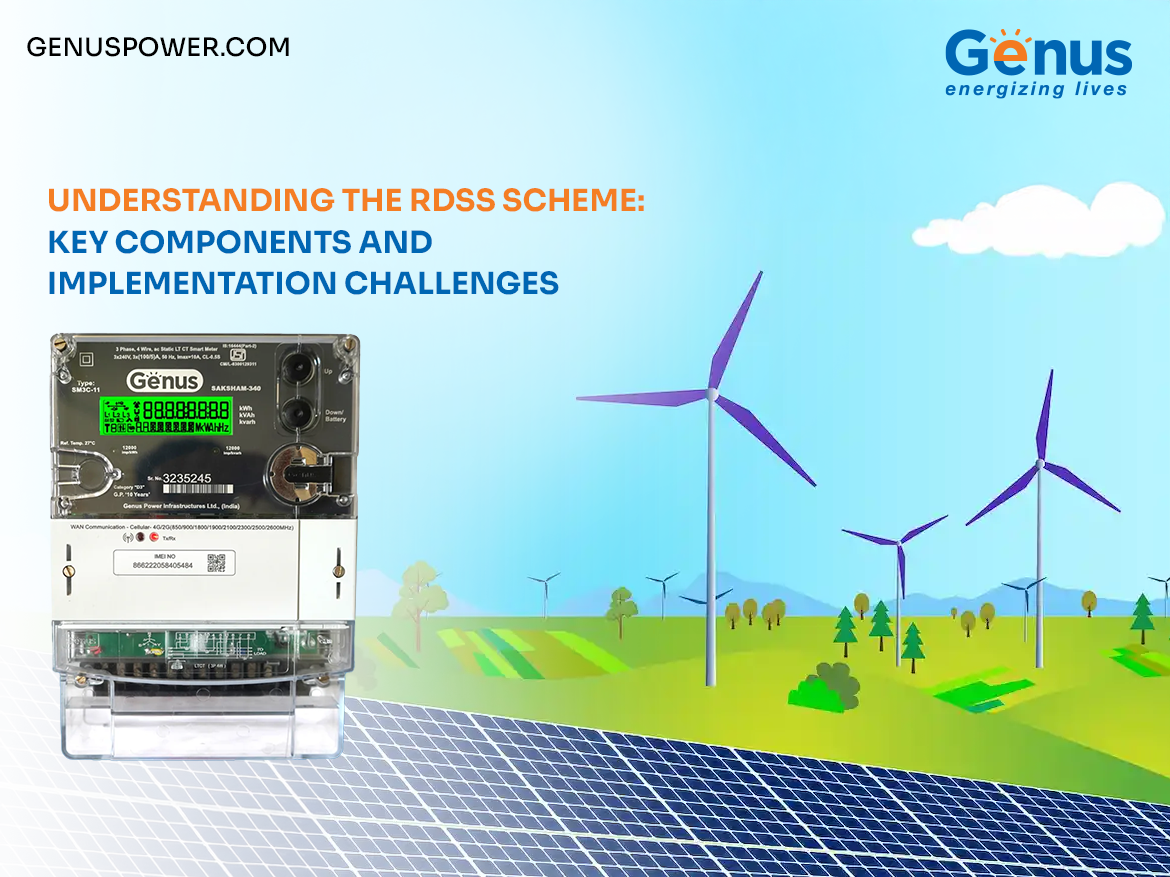
In this article, we’ll understand how the scheme works, how it’s going, and the challenges we need to overcome.
Launched in July 2021, under the Revamped Distribution Sector Scheme (RDSS), the Government of India has earmarked ₹97,631 crore for prepaid smart meters and another ₹1.8 lakh crore for strengthening distribution infrastructure. Its headline goals are clear:
Unlike earlier programmes, the RDSS scheme mandates projects on a “TOTEX (total expenditure)” basis, combining capital and operating expenditure to encourage outcome-based contracts and unlock private financing.
The Revamped Distribution Sector Scheme (RDSS) is split into two components, namely:
Central grants financial support to every qualifying Utility/DISCOM for two priorities. First comes prepaid smart metering, consumer, system, and feeder meters that sharpen billing accuracy, curb theft, and feed real-time data to head-end systems such as the Genus meter.
Second is distribution network upgradation: reconductoring, HVDS, and substation augmentation that reduce technical losses and prepare the grid for rising demand.
Funds are released only after DISCOMs publish timely accounts, clear GENCO dues, install prepaid meters in government premises, and score at least 60% on a results-evaluation matrix covering financial, operational, and policy milestones.
Grants cover upskilling programmes run by NPTI and other agencies, plus IT/OT enablement and change-management support, ensuring that the people operating India’s new digital grid are as future-ready as the hardware.
Challenges in Implementing the RDSS Scheme
Although the scheme promises to improve and streamline electricity distribution across the country, there are still many bottlenecks that need to be addressed for the program to succeed. This includes:
Executed with these guardrails, the RDSS scheme can usher in a distribution network that is reliable, data-driven, and future-proof, moving India decisively toward a greener, more resilient power sector.
Wrapping Up
The RDSS scheme is more than a funding pipeline; it is a blueprint for a transparent, financially resilient electricity grid.
Yes, there are many hurdles abound, from financing to execution, but the payoff is immense: reliable power for citizens and a sustainable business model for every Utility/DISCOM.
Smart metering alone accounts for roughly one-third of the sanctioned outlay and is critical for driving behavioural change. Each Genus meter, designed in line with the most stringent standards, supports prepaid functionality, remote disconnection, and firmware-over-the-air upgrades, giving every Utility/DISCOM the tools to curb losses and offer new tariff products.
With policy resolve, private innovation, and the intelligence baked into each Genus meter, we are at the centre of a distribution sector turnaround that will definitely change the energy posture of India.
Get in touch with us today to learn more about smart meters.